Daily Vocabulary Words: List of Daily Used Words in Leading International Newspapers
Hi there. Welcome to this special section @ Wordpandit.
Our endeavour here is very simple: to highlight important daily vocabulary words, which you would come across in leading newspapers in the country. We have included the following newspapers in our selection:
• The New York Times
• The Washington Post
• Scientific American
• BBC
• The Guardian
• Psychology Today
• Wall Street Journal
• The Economist
We are putting in extensive work for developing your vocabulary. All you have got to do is be regular with this section and check out this post on a daily basis. This is your repository of words that are commonly used and essentially, we are posting a list of daily used words. Hence, this has significant practical application as it teaches you words that are used commonly in leading publications mentioned above.
Visit the website daily to learn words from leading international newspapers.
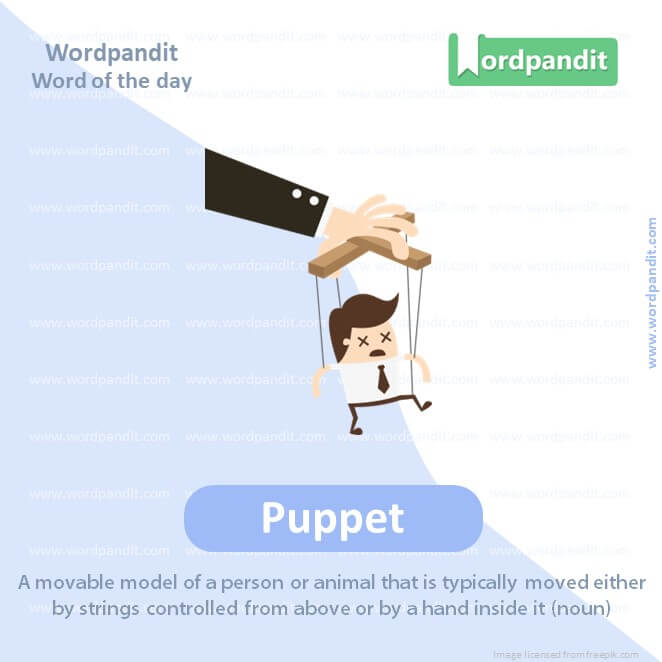
WORD-1: Puppet
CONTEXT: The choreographed rallies, puppet rivals, and Potemkin village polling stations are not subtle counterfeits designed to be mistaken for the genuine article.
SOURCE: The Guardian
EXPLANATORY PARAGRAPH: A puppet is like a special toy that looks like a person or animal. You can make it move and talk by using your hands, strings, or sticks. It’s like having a little friend you can control to tell stories or put on shows!
MEANING: A movable model of a person or animal that is typically moved either by strings controlled from above or by a hand inside it (noun).
PRONUNCIATION: PUP-it
SYNONYMS: Marionette, Doll, Manikin, Figure, Dummy, Automaton, Effigy.
USAGE EXAMPLES:
1. The children enjoyed the puppet show.
2. She is skilled in puppet making.
3. He used a puppet to tell the story.
4. The puppet danced on the stage.
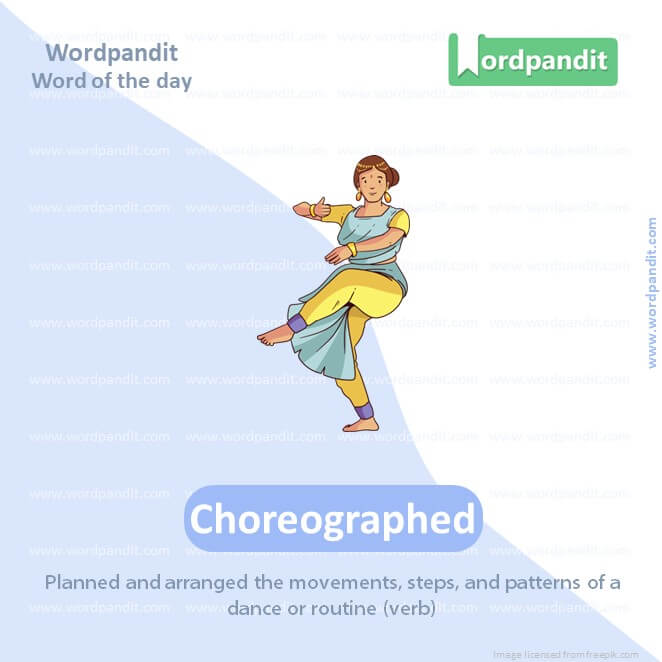
WORD-2: Choreographed
CONTEXT: The choreographed rallies, puppet rivals, and Potemkin village polling stations are not subtle counterfeits designed to be mistaken for the genuine article.
SOURCE: The Guardian
EXPLANATORY PARAGRAPH: Choreographed means planning out the moves in a dance or routine. Like when you decide the steps of a dance and practice them in order, that’s choreographing. It’s like making a map for how to move in a dance!
MEANING: Planned and arranged the movements, steps, and patterns of a dance or routine (verb).
PRONUNCIATION: KOR-ee-uh-grafed
SYNONYMS: Arranged, Designed, Planned, Devised, Composed, Coordinated, Orchestrated.
USAGE EXAMPLES:
1. The ballet was beautifully choreographed.
2. He choreographed a dance for the school play.
3. The fight scene was expertly choreographed.
4. The choreographed routine won the competition.
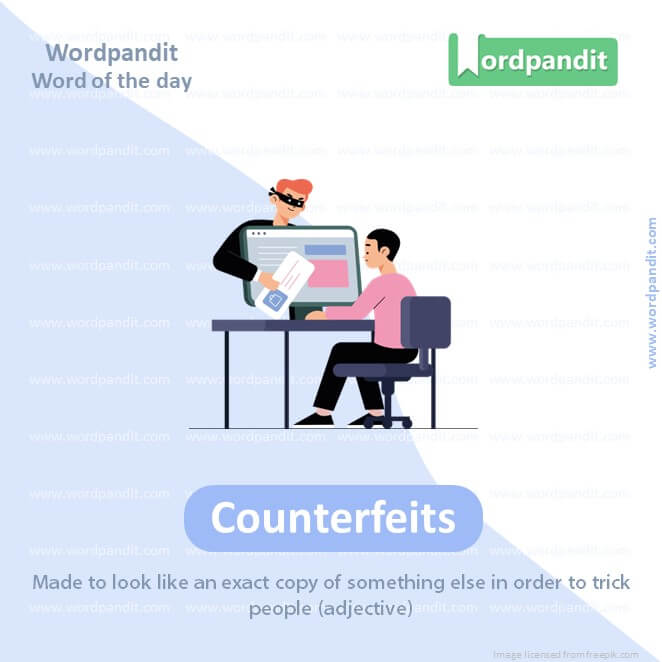
WORD-3: Counterfeits
CONTEXT: The choreographed rallies, puppet rivals, and Potemkin village polling stations are not subtle counterfeits designed to be mistaken for the genuine article.
SOURCE: The Guardian
EXPLANATORY PARAGRAPH: Counterfeits are things that are made to look just like real things but are actually fake. Like if someone makes a toy that looks just like a famous brand but it’s not really from that brand, that’s a counterfeit.
MEANING: Made to look like an exact copy of something else in order to trick people (adjective).
PRONUNCIATION: KOWN-tur-fits
SYNONYMS: Fake, Imitation, Forged, Bogus, Sham, Phony, Fraudulent.
USAGE EXAMPLES:
1. They were arrested for selling counterfeit products.
2. The museum discovered the painting was a counterfeit.
3. He unknowingly carried counterfeit money.
4. The market was flooded with counterfeits of designer bags.
WORD-4: Artifice
CONTEXT: They are deliberately crass – a sneering mimicry that rubs people’s noses in the artifice of politics. The point is to discredit the idea that elections make a difference.
SOURCE: The Guardian
EXPLANATORY PARAGRAPH: Artifice is like a clever trick or skill used to achieve something or trick people. Think of a magician using special tricks to make things disappear, that’s using artifice!
MEANING: Clever tricks or stratagems used to deceive others (noun).
PRONUNCIATION: AR-tuh-fiss
SYNONYMS: Trickery, Deception, Subterfuge, Cunning, Stratagem, Guile, Craft.
USAGE EXAMPLES:
1. The story was full of artifice and intrigue.
2. He used artifice to outwit his opponent.
3. The novel reveals the artifice behind the scam.
4. Their friendship was not built on artifice.
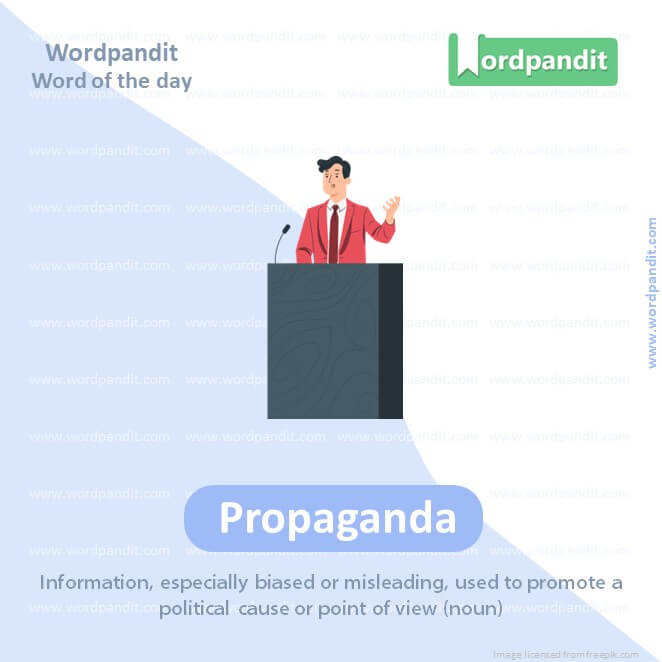
WORD-5: Propaganda
CONTEXT: Cultivating contempt for democracy is one of the most powerful propaganda weapons in a despot’s arsenal.
SOURCE: The Guardian
EXPLANATORY PARAGRAPH: Propaganda is when someone uses information, especially of a biased or misleading nature, to make people believe something or act a certain way. It’s like when someone tells a story to make you think something is really good or bad, even if it’s not completely true.
MEANING: Information, especially biased or misleading, used to promote a political cause or point of view (noun).
PRONUNCIATION: prop-uh-GAN-duh
SYNONYMS: Disinformation, Publicity, Brainwashing, Promotion, Spin, Agitprop, Indoctrination.
USAGE EXAMPLES:
1. The government used propaganda to influence public opinion.
2. During the war, both sides spread propaganda.
3. He was skeptical of the media’s propaganda.
4. The film served as propaganda for the new policy.
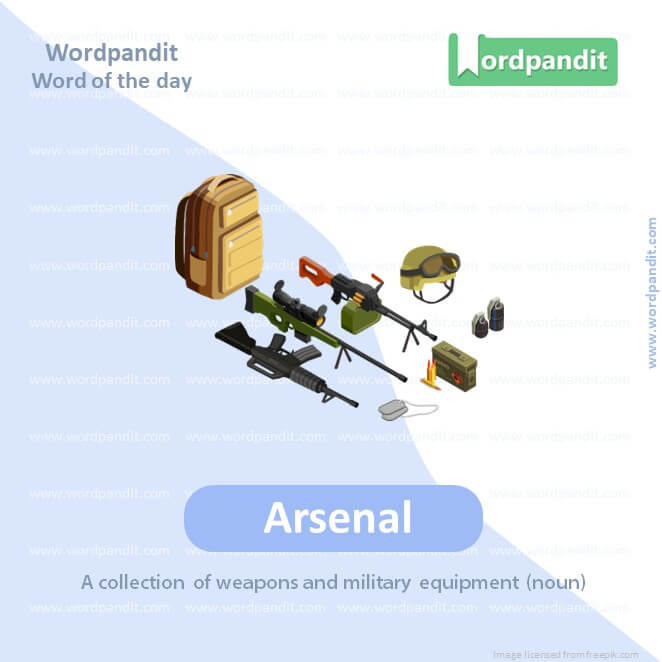
WORD-6: Arsenal
CONTEXT: Cultivating contempt for democracy is one of the most powerful propaganda weapons in a despot’s arsenal.
SOURCE: The Guardian
EXPLANATORY PARAGRAPH: An arsenal is a place where weapons and military equipment are stored. It’s like a big, special storage place or collection for all the things an army might need to use, like guns, tanks, or bullets.
MEANING: A collection of weapons and military equipment (noun).
PRONUNCIATION: AHR-suh-nuhl
SYNONYMS: Armory, Depot, Cache, Stockpile, Ammunition, Repository, Storehouse.
USAGE EXAMPLES:
1. The country’s arsenal included advanced missiles.
2. They raided the rebel’s arsenal.
3. He had an arsenal of tools at his disposal.
4. The museum displayed a historic arsenal.
WORD-7: Grasps
CONTEXT: This is something Donald Trump grasps intuitively, making his participation in this year’s White House race exceptionally dangerous.
SOURCE: The Guardian
EXPLANATORY PARAGRAPH: Grasps means to take and hold something firmly. Like when you grab your toy tightly so it doesn’t fall, you’re grasping it. It can also mean to understand something clearly.
MEANING: Seizes and holds firmly; also, comprehends or understands (verb).
PRONUNCIATION: grasps
SYNONYMS: Grips, Clutches, Seizes, Holds, Understands, Comprehends, Apprehends.
USAGE EXAMPLES:
1. She grasps the rope tightly.
2. He quickly grasps complex concepts.
3. The child grasps her mother’s hand.
4. He grasps the importance of the situation.
WORD-8: Intuitively
CONTEXT: This is something Donald Trump grasps intuitively, making his participation in this year’s White House race exceptionally dangerous.
SOURCE: The Guardian
EXPLANATORY PARAGRAPH: Intuitively is when you understand or know something without needing to think about it hard or be told. It’s like when you just feel something is right or wrong, like knowing it’s going to rain because the sky is dark.
MEANING: In a way that is known or understood without conscious reasoning (adverb).
PRONUNCIATION: in-TOO-ih-tiv-lee
SYNONYMS: Instinctively, Naturally, Automatically, Spontaneously, Inherently, Subconsciously, Unconsciously.
USAGE EXAMPLES:
1. She intuitively knew he was lying.
2. He solved the problem intuitively.
3. The software is designed to work intuitively.
4. They communicated almost intuitively.
WORD-9: Exceptionally
CONTEXT: This is something Donald Trump grasps intuitively, making his participation in this year’s White House race exceptionally dangerous.
SOURCE: The Guardian
EXPLANATORY PARAGRAPH: Exceptionally means something is really, really good or much better than usual. It’s like when you do an amazing job on your art project, and it looks exceptionally beautiful!
MEANING: To an unusually high degree; extremely (adverb).
PRONUNCIATION: ik-SEP-shuh-nuhl-lee
SYNONYMS: Extraordinarily, Remarkably, Outstandingly, Unusually, Notably, Particularly, Incredibly.
USAGE EXAMPLES:
1. She is an exceptionally talented musician.
2. The food at the restaurant was exceptionally good.
3. He performed exceptionally well in the exam.
4. The weather this summer has been exceptionally hot.
WORD-10: Expunge
CONTEXT: That delusion is no longer available. When Trump promises to expunge the “radical left thugs that live like vermin within the confines of our country”, it is a safe bet that he intends to follow through. If returned to the White House he would use every executive lever to eliminate restraint on his power.
SOURCE: The Guardian
EXPLANATORY PARAGRAPH: Expunge is like erasing or removing something completely. Imagine if you made a mistake in your drawing and then erased it so well that no one can see it was ever there. That’s expunging the mistake!
MEANING: To erase or remove completely (verb).
PRONUNCIATION: ik-SPUNJ
SYNONYMS: Erase, Delete, Remove, Obliterate, Wipe out, Efface, Annihilate.
USAGE EXAMPLES:
1. The record of his arrest was expunged.
2. He sought to expunge the comment from the minutes.
3. The mistake was expunged from the document.
4. Memories of the event were expunged from his mind.
Vocabulary Hard Words
The experience of unraveling the depths of language learning often leads us to ‘vocabulary hard words’. These challenging jargons might seem daunting initially, but with the right learning strategies, the enigma of ‘vocabulary hard words’ can turn into an enticing quest. But how can these ‘vocabulary hard words’ be learned effectively?
Firstly, to master ‘vocabulary hard words’, it’s vital to break down the process into manageable steps. Instead of tackling several words at once, focus on understanding a few each day. This gradual approach ensures effective retention and understanding.
Multimedia resources tremendously aid in comprehending ‘vocabulary hard words’. Movies, podcasts, or even music in the target language contribute a comprehensive perspective. They provide real-life contexts and usages of ‘vocabulary hard words’, making them more understandable and less intimidating.
The incorporation of memory-enhancing techniques, such as flashcards or digital apps, can significantly bolster the retention of ‘vocabulary hard words’. Such tools encourage active recall, helping to cement these words into your long-term memory. Mnemonic devices can also aid in making these words more approachable by associating the hard words with relatable images or stories.
Practice is decisive when learning ‘vocabulary hard words’. Using these words in your conversations, written communications, or even social media posts will facilitate a robust understanding and recall.
Finally, do not worry about making mistakes while using ‘vocabulary hard words’. Mistakes are essential stepping stones in the learning process. They provide insights into areas that need more focus and help refine your grasp over these words.
In conclusion, grasping ‘vocabulary hard words’ is undoubtedly a challenging task but not an insurmountable one. With the aid of effective strategies including graded learning, multimedia resources, memory-enhancing tools, and regular practice, the process of mastering ‘vocabulary hard words’ can become an engaging and rewarding journey.











